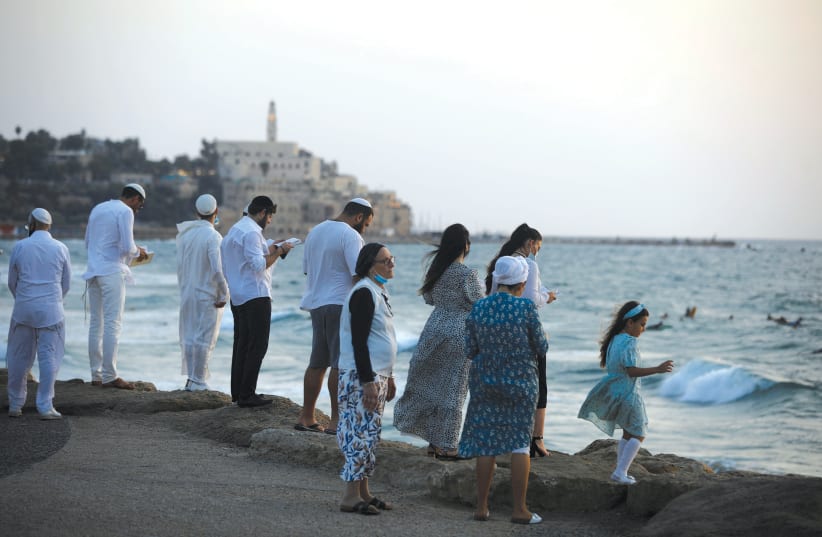The government has determined not to roll out additional restrictions on Israelis ahead of the High Holy Days. However, the Health Ministry has asked that citizens be reminded of existing rules and has released a series of additional recommendations to help keep people safer and reduce the spread of coronavirus during the holiday period.
Prayers: Recommendation is to hold them outside
Synagogues: If more than 50 people are going to pray together, then the Green Pass program is required, meaning that individuals must present a vaccination or recovery certificate or be tested and show a negative COVID-19 result. This includes children under 12.
Holidays: On Rosh Hashanah and the day after (Sept. 7 through 9), PCR tests will be accepted for four days instead of three. As such, if you took a test on Sunday you can still go into synagogue on Thursday.
Four Species Markets: Must adhere to the Purple Ribbon standard of one person for every seven square meters.
Private Gatherings and Holiday Meals: Limited to 50 people inside and 100 outside.
Gatherings in Open Spaces: If there are 100 people they are required to wear masks.
Western Wall: Up to 8,000 people can pray at the same time in capsules of 15 people. Individuals must wear masks. There will be ushers to enforce the restrictions.
